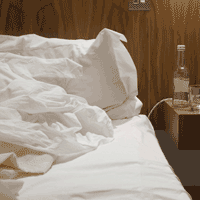Hoteliers are exploring strategies and equipment to ensure they pass the white glove test.
Trip advisor recently published it’s annual list of the “dirtiest hotel rooms in America”, and heaven help you if your hotel is named on this dishonorable inventory, which points a disgusted finger at those hospitality properties whose physical conditions, hotel guests deem unacceptable enough to warrant such shameful singling-out.
In today’s fastidiously germ-conscious times, cleanliness is a critical cornerstone of the hospitality industry. Indeed, it’s impossible to overstate how important this increasingly essential imperative is to a modern hotel’s success. It’s a good thing, then, that the tools and services available to hoteliers for cleaning up their acts are more numerous and sophisticated than ever.
“Guests’ expectations around cleaning have shifted, and hotels have had to respond,” says Dawn Koenig, vice-president, Brand Performance Support, at McLean Va.,-based, Homewood Suites and Home2 Suites by Hilton. She credits the media for lighting this fire, along with its preoccupation with such nasties as bed bugs, blacklight bedspread revelations and mystery shoppers, whose findings hit the six o’clock news. “It’s kind of like they didn’t know what they didn’t know, and now they do. It raises their expectations and requires us to move the bar to meet them.”
In turn, Hilton has amended its checkout activities to include a wholesale cleanup of every piece of fabric on the bed, including the top comforter and decorative pillow cover but excluding the bed skirt. Guest research has revealed a demand for more thorough washing of these hotel-stay essentials, and the new program responding to it will launch at Homewood in 2012 (and at Home2 with its first property, opening in Fayetteville, N.C., this spring).
“Hotel cleaning is a very detailed, very efficient thing and the whole scene is more competitive now than in the past. It’s not something you can take for granted anymore. Demand for this type of cleaning, along with expectations around it, have really increased,” says Robert McNamara, national general manager for the Canadian arm of the Minneapolis, Minn.-based Jani-King International.
In turn, business has picked up markedly in the last two years for this 41-year-old commercial cleaning and hospitality franchise firm that offers industrial cleaning services to the global hotel industry worldwide.
Large hotel brands are issuing an increased number of requests for proposals from third parties, anxious to explore the option of outsourcing this messy task. “Three or four years ago we were knocking on doors trying to tell our story,” says Gil Sanchez, assistant director of the company’s hotel division. “Now they’re seeking us out.”
More than anything, financial considerations are driving hoteliers to travel this route. With average rates lagging, says Sanchez, outsourcing can emerge as a more attractive option. “For some properties, the cost [of outsourcing versus in-house cleaning] might be equal, but for the majority, considering benefits and general insurance liability, it’s cheaper to hire us and outsource your largest department.”
More than that, this route allows hoteliers to return to their core competencies. “Hotels are looking at selling their facilities and getting that edge,” says McNamara. “By handing housekeeping off to someone else, hoteliers can concentrate on other things.”
That kind of attention is important in this arena, agrees Tim Spence, senior manager, Product Marketing for Rubbermaid Commercial Products. And, it’s an ever-changing target. Last year’s H1N1 outbreak and the hysterical aftermath that ensued, changed people’s perceptions about touching items in public spaces, and suddenly a remote control in a hotel room emerged as a potentially dangerous source of illness.
Touchpoints, says Spence, should be a hotelier’s focus now. It’s why Rubbermaid markets its line of touch-free restroom fixtures — courtesy of the bathroom roducts company it acquired a few years ago — with such conviction these days. The promise of an automatic faucet, toilet flusher and soap dispenser is more appealing than ever.
“It’s the touchpoints people have to worry about, and if you don’t have to touch something, you’re happier,” he says. “Education and healthcare were first on board — they usually are because they’re publicly funded — but I’m sensing people are going to want to have that more in hotels. It’s healthier, better for the environment [the faucet turns off when no hands are beneath it] and there are cost savings associated with the product. The more touch-free functions there are, the less time you need to spend cleaning rooms.”
With regard to the materials being used to clean, you’ll find microfibre at the top of the newsfeed. Considerably more expensive than the “dollar-store cloths” of yesteryear, this revolutionary bit of professional quality fabric promises vastly improved pick-up
than its predecessors. And the microfibre mops — like industrial versions of the Swiffer, complete with a reservoir of cleaning solution — offer better performance for quick cleanups in lobby areas, to say nothing of the water conservation they feature. Cloths that were worth a dollar 10 years ago are now worth close to $10, but the nature of microfibre does a much better job than cotton or the old blends, and they launder better, too.
What’s more, says Scott Larsen, general manager of the Holiday Inn San Antonio Airport, the fibre may prove the saving grace for a passing grade in a cleanliness inspection. “The microfibre towels are one of the new products that are working very well,” says Larsen, president of the San Antonio Hotel and Lodging Association, and vice-chair of the General Managers’ Advisory Board. “Wiping down a drawer with microfibre is much more efficient than having to put a vacuum inside the drawer. It picks up hair a whole lot better. And, on any corporate brand standard investigation, a hair in the room will fail you.”
There’s also a raft of interesting new equipment available to hotel managers keen on clean. “I’m a bit of a clean freak anyway, so I’m perfectly suited for this business,”concedes Al Bennett, vice-president of Sales and Marketing with Kärcher Canada, the Canadian arm of the cleaning equipment manufacturer. “If a hotel room is not perfectly clean, that’s a big turnoff. If the sidewalks outside the front entrance are dirty, you’ve [ruined] the first impression. And, if you go in to the hotel bathroom or restaurant and find it’s not clean, that’s a no-brainer. But there’s so much help around now that can help solve those problems.”
To wit, Kärcher sells a slew of commercial cleaners, big and small, aiming particularly at the hotel industry. “There are guys running around with mops and buckets trying to make the front of the hotel look clean, but there’s equipment that can do a dramatically better job of improving appearance, while also reducing time and labour,” says Bennett. As a rule, Bennett applauds the miracle of mechanization and the impact it can have on a hotel’s existence. Rather than taking an hour to clean a hallway, the right tool can pull the job off in 15 or 20 minutes. And, a top-line vacuum cleaner with a cuttingedge filtering system will radically improve interior air quality while promising not to return a layer of dust to a room minutes after the job’s done. Additionally, an effective vacuum, together with an interim cleaning program undertaken with sophisticated carpet extraction equipment, will extend the life of a carpet significantly. After all, Bennett points out, a single grain of sand has 32 cutting edges.
Still, says Bennett, this kind of product is often a tough sell. “Many hotels continue to do things the old way because they’ve always done them that way and then you tell them the alternative will cost $2,000. Yes, it costs, but there’s a return on investment to be enjoyed here. It’s an investment in the appearance of a hotel and in protecting its assets.
“After all, you go into a dirty hotel, you’re not going to go back.”





















